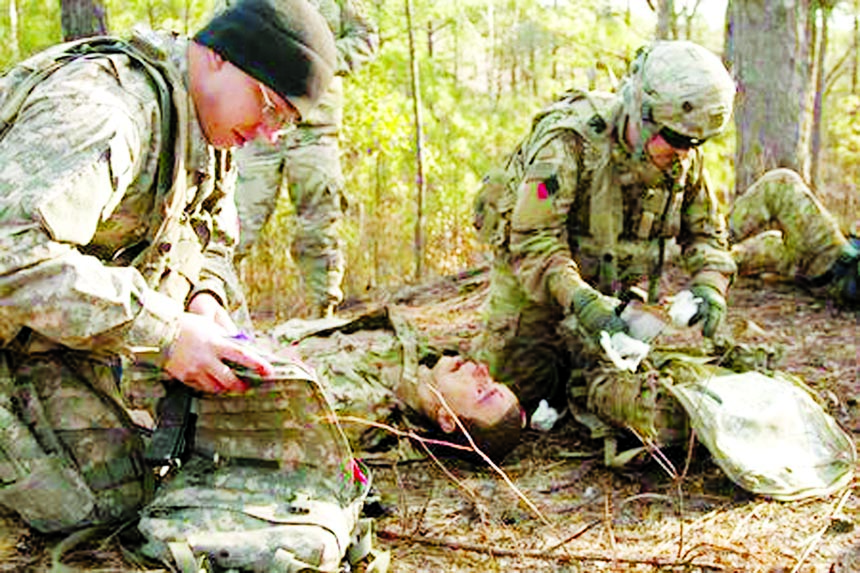
Reuters, Fort Benning :
As a U.S. Army medic, Sergeant First Class Jonathan Ortega admits that when he gets to Afghanistan, his instinct will be to help care for any wounded Afghan troops. It is a feeling he will have to fight.
Ortega is heading soon to the 16-year-old war as part of a new kind of U.S. Army training brigade specifically created to mentor Afghan soldiers in the field and taught to resist taking over missions, even in the event of a Taliban attack.
“It would be hard for me,” acknowledged Ortega, 30, who treated wounded Iraqi forces when he deployed to Mosul in 2005 and 2006.
“But that’s a big piece … not to get my hands dirty. To step back (and advise them).”
In America’s longest war, Ortega’s comments carry echoes of the many trainers who came before him, who wrestled with when to intervene directly, when to stand back and where to set expectations for Afghan soldiers who have long struggled against a Taliban insurgency.
But the U.S. Army is hoping that Ortega and his more than 800 colleagues are the start of something new, as members of the inaugural Security Force Assistance Brigade, or SFAB, whose creation aims to institutionalize and improve the advising of foreign soldiers that until now was more ad hoc.
The Army proudly points to the more rigorous training and deep combat experience of the brigade’s recruits, who are ready to deploy down to small-sized Afghan troop formations – bringing with them the ability to help direct U.S. air strikes.
Still, the brigade’s creation has drawn scrutiny and questions about whether it is deploying too quickly and if expectations are set too high for soldiers whose goals of mentoring Afghan forces are, by definition, long-term.
“It’s an evolution, not a revolution,” said Jason Amerine, an Afghan war veteran and a fellow at the New America Foundation think tank in Washington, who broadly supports the SFAB’s creation.
Defense Secretary Jim Mattis expressed confidence in its readiness and acknowledged he had been keeping a close eye on the brigade’s development, part of his efforts to ease pressure on overstretched special operations forces.
“You’ll see more and more of this,” Mattis told Reuters after a visit to the troops last week at Fort Benning, Georgia.
The deployment in the coming weeks is another sign of deepening U.S. involvement in Afghanistan under President Donald Trump, even as critics warn his military cannot promise to defeat the Taliban anytime soon or overcome Afghanistan’s vast political divisions and entrenched corruption. More than 2,400 U.S. forces have died in the war.
Sergeant First Class Jeremiah Velez, 34, said he was well aware that his brigade’s creation had triggered some anxiety in parts of the U.S. special operations community.

